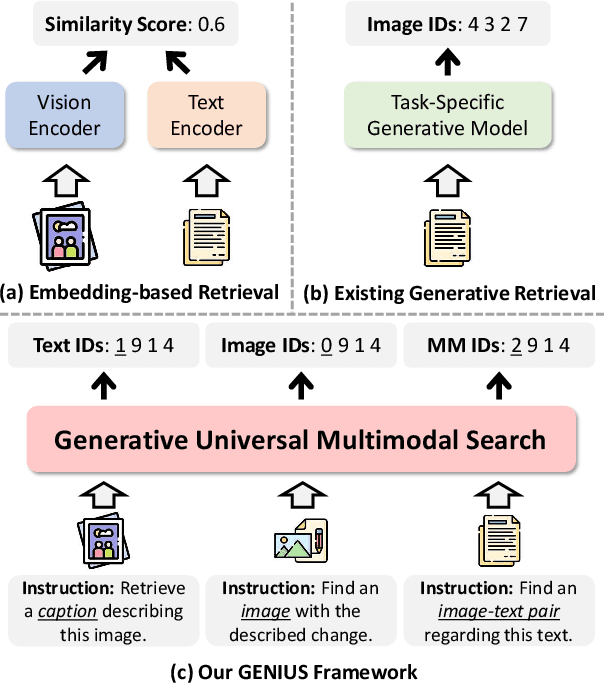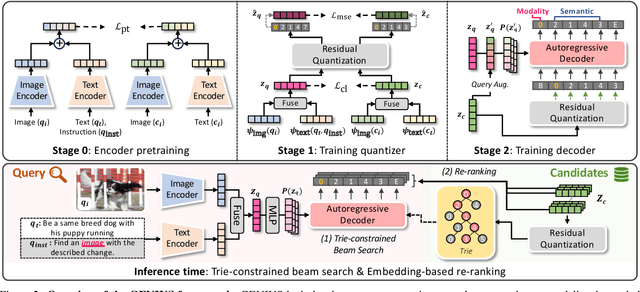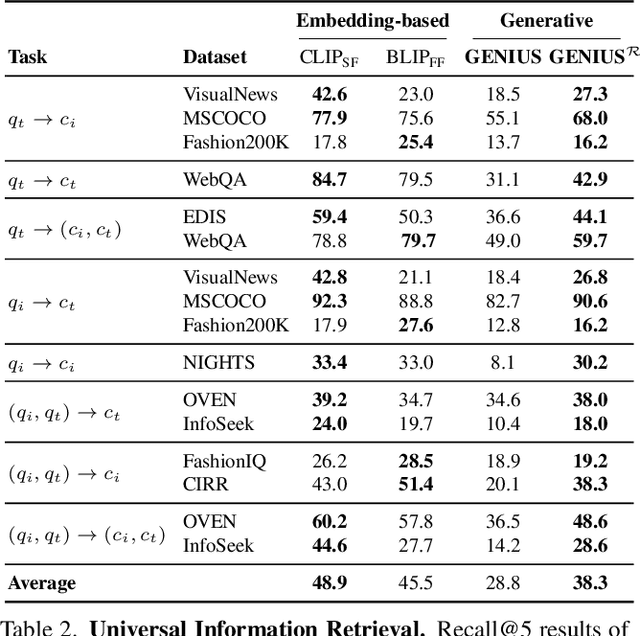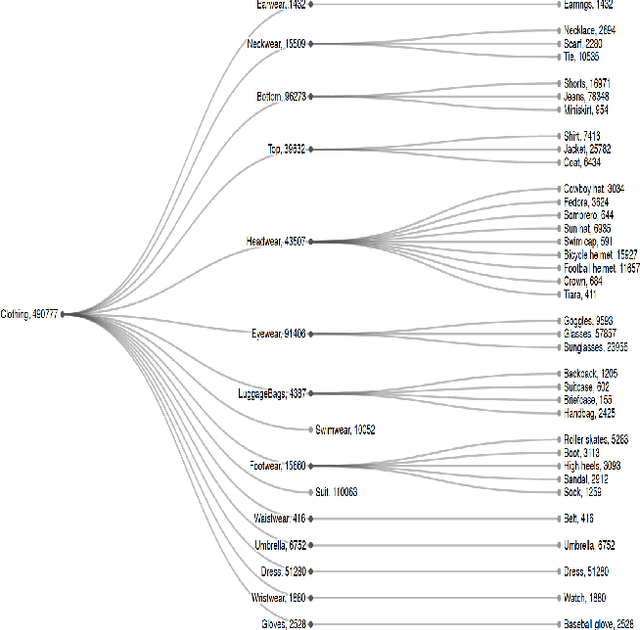Douglas Gray
GENIUS: A Generative Framework for Universal Multimodal Search
Mar 25, 2025



Abstract:Generative retrieval is an emerging approach in information retrieval that generates identifiers (IDs) of target data based on a query, providing an efficient alternative to traditional embedding-based retrieval methods. However, existing models are task-specific and fall short of embedding-based retrieval in performance. This paper proposes GENIUS, a universal generative retrieval framework supporting diverse tasks across multiple modalities and domains. At its core, GENIUS introduces modality-decoupled semantic quantization, transforming multimodal data into discrete IDs encoding both modality and semantics. Moreover, to enhance generalization, we propose a query augmentation that interpolates between a query and its target, allowing GENIUS to adapt to varied query forms. Evaluated on the M-BEIR benchmark, it surpasses prior generative methods by a clear margin. Unlike embedding-based retrieval, GENIUS consistently maintains high retrieval speed across database size, with competitive performance across multiple benchmarks. With additional re-ranking, GENIUS often achieves results close to those of embedding-based methods while preserving efficiency.
Improving Apparel Detection with Category Grouping and Multi-grained Branches
Jan 17, 2021



Abstract:Training an accurate object detector is expensive and time-consuming. One main reason lies in the laborious labeling process, i.e., annotating category and bounding box information for all instances in every image. In this paper, we examine ways to improve performance of deep object detectors without extra labeling. We first explore to group existing categories of high visual and semantic similarities together as one super category (or, a superclass). Then, we study how this knowledge of hierarchical categories can be exploited to better detect object using multi-grained RCNN top branches. Experimental results on DeepFashion2 and OpenImagesV4-Clothing reveal that the proposed detection heads with multi-grained branches can boost the overall performance by 2.3 mAP for DeepFashion2 and 2.5 mAP for OpenImagesV4-Clothing with no additional time-consuming annotations. More importantly, classes that have fewer training samples tend to benefit more from the proposed multi-grained heads with superclass grouping. In particular, we improve the mAP for last 30% categories (in terms of training sample number) by 2.6 and 4.6 for DeepFashion2 and OpenImagesV4-Clothing, respectively.
 Add to Chrome
Add to Chrome Add to Firefox
Add to Firefox Add to Edge
Add to Edge